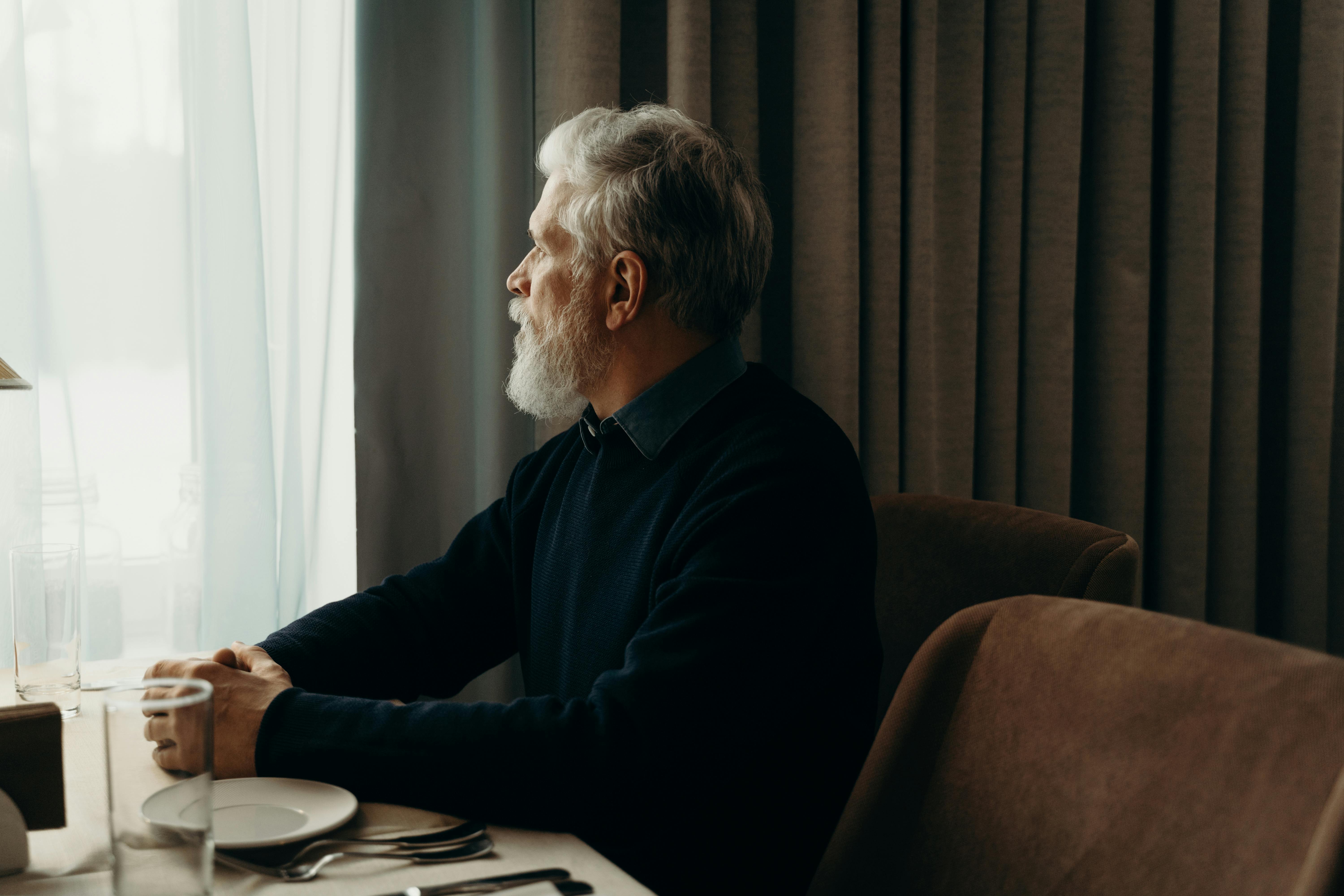If you've been feeling on edge, worried, or unable to relax, you might be wondering whether what you're experiencing is normal stress or something more. This evidence-based screening tool, adapted from clinically validated assessments, can help you understand your symptoms and determine whether speaking with a mental health professional might be beneficial.
Key Takeaways
This is a screening tool, not a diagnosis: Only a qualified mental health professional can diagnose anxiety disorders through a comprehensive evaluation.
Anxiety is highly treatable: With proper treatment, most people with anxiety disorders see significant improvement in their symptoms.
Early intervention matters: Seeking help sooner rather than later typically leads to better outcomes and prevents symptoms from worsening.
About This Anxiety Screening Quiz
This self-assessment is based on the GAD-7 (Generalized Anxiety Disorder-7), a screening tool widely used by healthcare professionals to assess anxiety symptoms.
The quiz asks about symptoms you may have experienced over the past two weeks. Answer honestly—there are no right or wrong answers, and your responses can help guide you toward appropriate next steps.
Important Note
Only a trained mental health professional can provide a diagnosis. This quiz helps you recognize patterns, not determine whether you have the disorder.
The Anxiety Self-Assessment
Over the last 2 weeks, how often have you been bothered by the following problems? Rate each question:
0 = Not at all
1 = Several days
2 = More than half the days
3 = Nearly every day
Questions:
Feeling nervous, anxious, or on edge
Not being able to stop or control worrying
Worrying too much about different things
Trouble relaxing
Being so restless that it's hard to sit still
Becoming easily annoyed or irritable
Feeling afraid as if something awful might happen
How to Score:
Add up your points from all seven questions:
0-4 points: Minimal anxiety
5-9 points: Mild anxiety
10-14 points: Moderate anxiety
15-21 points: Severe anxiety
What Your Score Means
Minimal Anxiety (0-4)
Your responses suggest you're experiencing minimal anxiety symptoms. Everyone feels anxious occasionally, especially during stressful periods, and your symptoms appear to be within a normal range.
However, if you feel your anxiety is interfering with your daily life despite a low score, trust your instincts and consider speaking with a healthcare provider.
Mild Anxiety (5-9)
Your responses indicate mild anxiety symptoms that may be worth monitoring. While these symptoms might not significantly interfere with your daily functioning, they could progress without appropriate management.
Consider implementing stress-reduction techniques like regular exercise, adequate sleep, and mindfulness practices. If symptoms persist for more than a few weeks or begin to worsen, professional guidance can help.
Moderate Anxiety (10-14)
Your responses suggest moderate anxiety that likely affects your daily life. At this level, anxiety symptoms typically interfere with work, relationships, or other important areas of functioning.
Speaking with a mental health professional may be recommended.
Severe Anxiety (15-21)
Your responses indicate severe anxiety symptoms that are likely significantly impacting your quality of life. Severe anxiety can affect work performance, relationships, physical health, and overall wellbeing.
You may want to consider seeing a mental health professional for an evaluation.
Scoring provides a general sense of symptom severity; it does not replace a clinical evaluation.
Understanding Anxiety Disorders
Anxiety disorders are among the most common mental health conditions, affecting approximately 40 million adults in the United States, according to the Anxiety and Depression Association of America. Despite being highly treatable, only about 37% of people with anxiety disorders receive treatment.
Types of Anxiety Disorders
Generalized Anxiety Disorder (GAD)
GAD involves persistent, excessive worry about various aspects of life, even when there's little reason to worry. People with GAD often anticipate disaster and are overly concerned about health, money, family, work, or other issues.
Social Anxiety Disorder
This involves intense fear or anxiety in social situations where you might be scrutinized or judged by others. The fear often stems from worrying about embarrassment or humiliation.
Panic Disorder
Characterized by recurrent, unexpected panic attacks—sudden periods of intense fear that come on quickly and reach their peak within minutes.
Specific Phobias
These involve intense, irrational fear of specific objects or situations that pose little actual danger but provoke anxiety and avoidance.
Common Anxiety Symptoms
Beyond what's assessed in the screening quiz, anxiety can manifest in various ways:
Physical Symptoms
Anxiety can cause real physical symptoms including:
Rapid heartbeat or palpitations
Sweating or trembling
Shortness of breath or feeling smothered
Chest pain or discomfort
Nausea or digestive problems
Dizziness or lightheadedness
Muscle tension or headaches
Emotional and Cognitive Symptoms
Persistent worry that's difficult to control
Racing thoughts or mind going blank
Difficulty concentrating
Sense of impending danger or doom
Irritability or feeling on edge
Sleep disturbances
What Causes Anxiety?
Anxiety disorders develop from a complex combination of factors, and understanding potential causes can help with treatment planning.
Biological Factors
Research suggests that brain chemistry plays a role in anxiety disorders. Neurotransmitters like serotonin, dopamine, and GABA help regulate mood and anxiety levels. When these chemicals are imbalanced, anxiety symptoms may develop.
Genetics also contributes, with anxiety disorders running in families. If you have a close relative with an anxiety disorder, you have a higher likelihood of developing one yourself.
Environmental Factors
Stressful or traumatic life experiences can trigger anxiety disorders, particularly in people who are already biologically vulnerable. These experiences might include:
Childhood trauma or abuse
Significant life changes or transitions
Chronic stress from work or relationships
Death of a loved one
Financial difficulties
Medical Conditions
Certain medical conditions can cause or worsen anxiety symptoms, including thyroid problems, heart conditions, diabetes, respiratory disorders, and chronic pain. This is why medical evaluation is important when anxiety symptoms develop.
When to Seek Professional Help
You should consider reaching out to a mental health professional if:
Your anxiety interferes with work, school, or relationships
You avoid situations because of anxiety
Your anxiety feels out of control or overwhelming
You experience panic attacks
You use alcohol or drugs to cope with anxiety
You have thoughts of self-harm
Your physical symptoms are persistent or concerning
How Online Psychiatry Can Help
Platforms like Blossom Health make accessing professional anxiety treatment easier than ever. Virtual psychiatry offers several advantages:
Convenience: Attend appointments from home without travel time or waiting rooms.
Accessibility: Connect with licensed psychiatric providers quickly, often within days rather than weeks or months.
Continuity of care: Maintain consistent treatment even when traveling or relocating.
Insurance coverage: Most major insurance plans cover online psychiatry at the same rate as in-person visits.
Next Steps
If your screening results suggest you may have anxiety, or if you're concerned about your symptoms, consider these next steps:
Talk to a healthcare provider: Schedule an appointment with your primary care doctor or a mental health professional for comprehensive evaluation.
Document your symptoms: Keep a journal of when anxiety occurs, potential triggers, and how symptoms affect your daily life.
Consider online psychiatry: Platforms like Blossom Health can connect you with licensed psychiatric providers quickly, often within days.
Reach out for support: Talk to trusted friends or family members about what you're experiencing.
Practice self-care: While awaiting professional help, focus on basics like sleep, nutrition, exercise, and stress management.
The Bottom Line
Experiencing anxiety symptoms doesn't mean you're weak or flawed—anxiety disorders are medical conditions that respond well to treatment. This screening quiz is a starting point to help you understand your symptoms and determine whether professional help might be beneficial.
Remember that only a qualified mental health professional can provide an accurate diagnosis and personalized treatment plan. If you're struggling with anxiety, reaching out for help is a sign of strength, not weakness.
Medical Disclaimer
This article is for informational purposes only and is not a substitute for professional medical advice, diagnosis, or treatment. Always seek the advice of your physician or qualified healthcare provider with any questions you may have regarding medications or mental health treatment. Never disregard professional medical advice or delay seeking it because of something you have read in this article. If you are experiencing a mental health crisis, call 988 (Suicide and Crisis Lifeline) or seek immediate emergency care.







































































































































